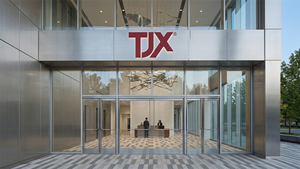A new report, “Assessing the Impact of State Pharmacist Vaccination Authority on Vaccine Uptake in the U.S.,” co-released by the Global Healthy Living Foundation (GHLF) and the IQVIA Institute for Human Data Science, showed that restrictive policies regarding pharmacist vaccination authority may have resulted in millions of missed vaccinations for RSV, pneumococcal, and shingles in adults across the United States.
"Pharmacists are among the most accessible healthcare professionals, yet their ability to administer vaccines varies widely by state,” said Robert Popovian, PharmD, MS, Founder of Conquest Advisors and GHLF’s Chief Science Policy Officer, who co-authored the report which examines how state-level regulatory policies impact adult immunization rates.
“Our findings suggest that in states with stricter pharmacist vaccine administration policies, vaccination rates were significantly lower, which could have led to more than two million missed adult vaccinations. Policymakers should look hard at these disparities and consider reforms that expand pharmacist vaccination authority to improve public health outcomes.”
Key Findings
The report analyzes state-by-state vaccination policies and their effect on immunization rates for RSV, pneumococcal, and shingles vaccines. Among the major findings:
- States requiring a physician protocol for pharmacists to administer vaccines had a 9 percent lower average vaccination rate than states where pharmacists could independently prescribe and administer vaccines.
- States requiring a physician prescription for pharmacists to administer RSV vaccines had a 14 percent lower vaccination rate than states that allowed pharmacists to vaccinate independently or via standing orders.
- If the average vaccination rates for RSV, shingles, and pneumococcal vaccines in studied adults across the states that require a protocol or a prescription for pharmacists to administer these vaccines were comparable to the rates in states that had independent/Statewide Standing Order (SSO) policies, this may have resulted in an estimated 2.3 million additional adults receiving the vaccine.
“Limiting pharmacist vaccination authority can translate into lower immunization rates and increased public health risks,” said report co-author Vibhu Tewary, Project Director at the IQVIA Institute for Human Data Science. “Assessing the removal of unnecessary barriers for pharmacists can help increase vaccination uptake, particularly for older adults and high-risk individuals who may struggle to access physician offices.”
The Role of Pharmacists in Public Health
Pharmacists play a critical role in increasing vaccination rates, especially in underserved and rural communities. Nearly 90 percent of Americans live within five miles of a pharmacy, making pharmacies a vital access point for adult immunizations. The report underscores the need to leverage pharmacists' accessibility and expertise to close immunization gaps and prevent vaccine-preventable diseases.
Policy Considerations
The report calls on policymakers to evaluate reforms that could improve vaccine accessibility and uptake, including:
- Acknowledge the importance of adult immunization in improving public health outcomes and reducing healthcare disparities.
- Consider standardizing pharmacist immunization policies nationwide to ensure equitable vaccine access for all individuals across the U.S.
- Assess the expansion of pharmacists’ authority to administer vaccines to align them with physicians and other healthcare providers in the role of immunization.
- Evaluate the elimination of prescriber-level protocols or implementation of statewide standing orders where appropriate to reduce administrative burdens, particularly for independent community pharmacies.
- Evaluate the removal of prescription requirements for adult vaccines to reduce barriers for vulnerable patients lacking regular or adequate access to primary care providers.
About the IQVIA Institute for Human Data Science
The IQVIA Institute for Human Data Science contributes to the advancement of human health globally through timely research, insightful analysis, and scientific expertise applied to granular non-identified patient-level data.
Fulfilling an essential need within healthcare, the Institute delivers objective, relevant insights, and research that accelerate understanding and innovation critical to sound decision making and improved human outcomes. With access to IQVIA’s institutional knowledge, advanced analytics, technology, and unparalleled data, the Institute works in tandem with a broad set of healthcare stakeholders to drive a research agenda focused on Human Data Science, including government agencies, academic institutions, the life sciences industry, and payers. More information about the IQVIA Institute can be found at www.IQVIAInstitute.org.
GHLF's Patient-Focused Economic and Policy Research Division:
At the Global Healthy Living Foundation, the Patient-Centered Economic and Policy Research Division conducts original research focused on health policy economics and outcomes research to better understand how current and proposed health policies, regulations, and legislation affect patients' financial, healthcare, quality-of-life, and other outcomes. We aim to increase transparency and understanding of the public health policies, regulations, and legislation impacting chronic disease patient communities by sharing our research via publication, our website, social media platforms, and conventional media. Our researchers also address these important topics through opinion editorials, speaking engagements, and our world-class podcast series – Healthcare Matters. Our experts have published extensively on the impact of biopharmaceutical and health policies on costs and clinical outcomes in the most prominent medical sources and media publications. They are sought-after speakers, providing briefings and expert reviews for the U.S. Congress, dozens of state legislatures, and at conferences and medical symposiums around the world. Learn more at https://ghlf.org/our-work/economic-policy-research/.
View source version on businesswire.com: https://www.businesswire.com/news/home/20250225010195/en/
Contacts
Louis Tharp
Phone: (845) 323-8408
Email: ltharp@ghlf.org





